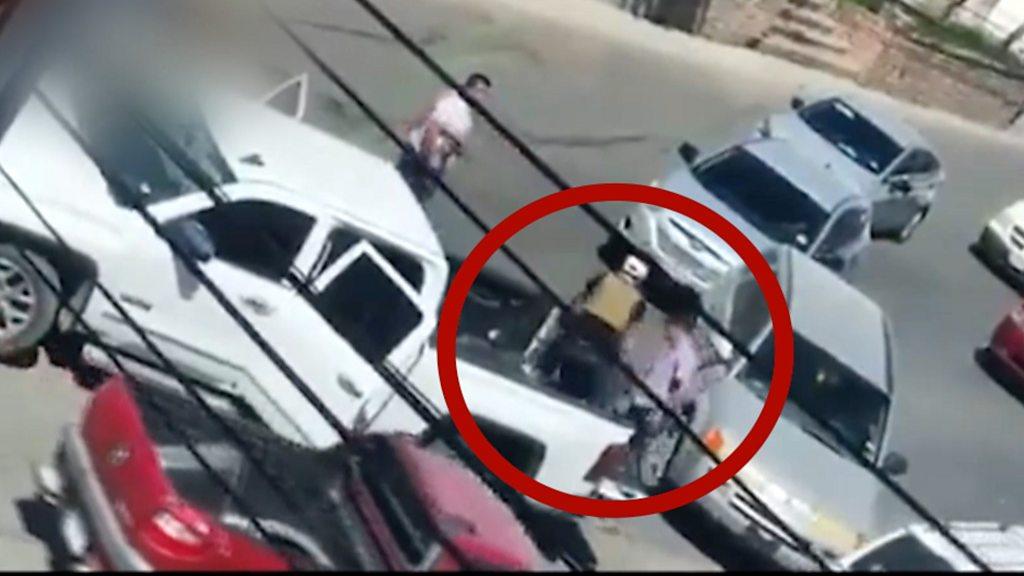Mexico cartel turns in own men over US kidnappings
- Published
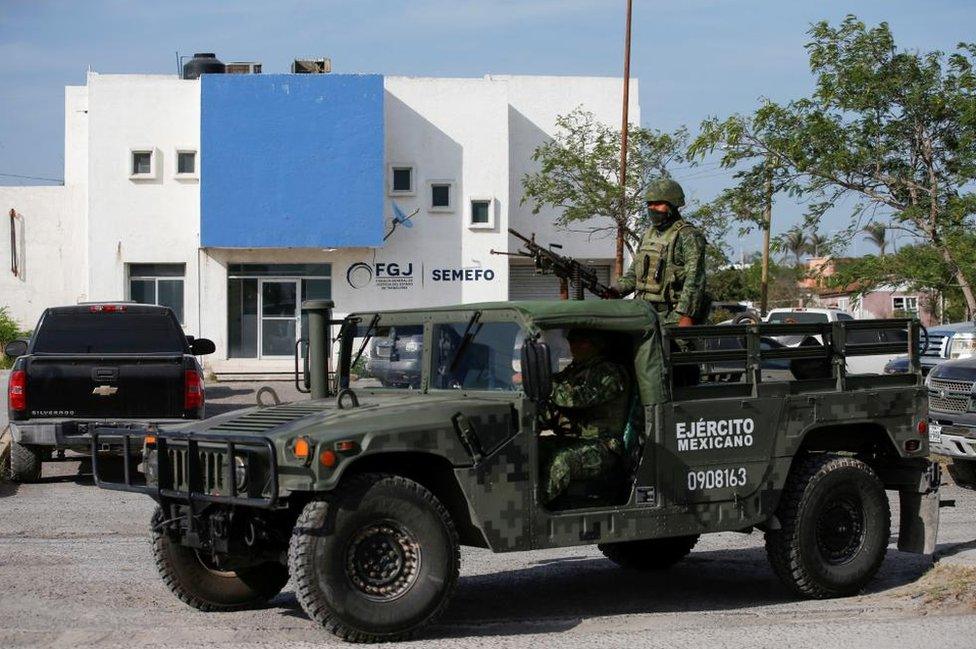
Troops stand guard at the morgue where the Americans' bodies were taken
Reports from the Mexican border city of Matamoros say a splinter group of the Gulf Cartel, called the Scorpions Group, has apologised for kidnapping four US citizens last week, killing two of them, and has turned over the men it says are responsible.
On their front pages, many of Mexico's newspapers published a photograph that appears to show five men lying face down on the ground, their hands tied, and their T-shirts pulled up above their heads. It was apparently taken as police arrived on the scene.
A letter from the Scorpions Group was allegedly left with the men which apologised to the people of Matamoros, to the US victims and their families, and to a Mexican woman killed last week when the gang fired on a white minivan the Americans were travelling in.
The Associated Press says it has obtained a copy of the letter from a law enforcement official in the state of Tamaulipas.
"We have decided to turn over those who were directly involved and responsible for the events", the letter reads, saying the five had "acted under their own decision-making and lack of discipline". The letter also accuses the men of breaking the cartel's rules over "protecting the lives of the innocent".
Video shows the moment four Americans were kidnapped in Mexico
Meanwhile, a health clinic in Matamoros where the cartel members allegedly took the injured US citizens for treatment has been cordoned off by police. Reports suggest the four Americans were taken there by the gang but the two with the worst injuries - Shaeed Woodard and Zindell Brown - died soon after.
Reuters news agency reported that Mexican officials had given the bodies of the two dead men to US officials in Matamoros on Thursday afternoon, and their remains were repatriated.
The latest developments come as some doubts have been cast in Mexico on the initial version of events. The group were said to have travelled to Matamoros for one of them, Latavia McGee, to undergo a cosmetic medical procedure at a clinic in the city. Her three friends were said to have accompanied her to the appointment.
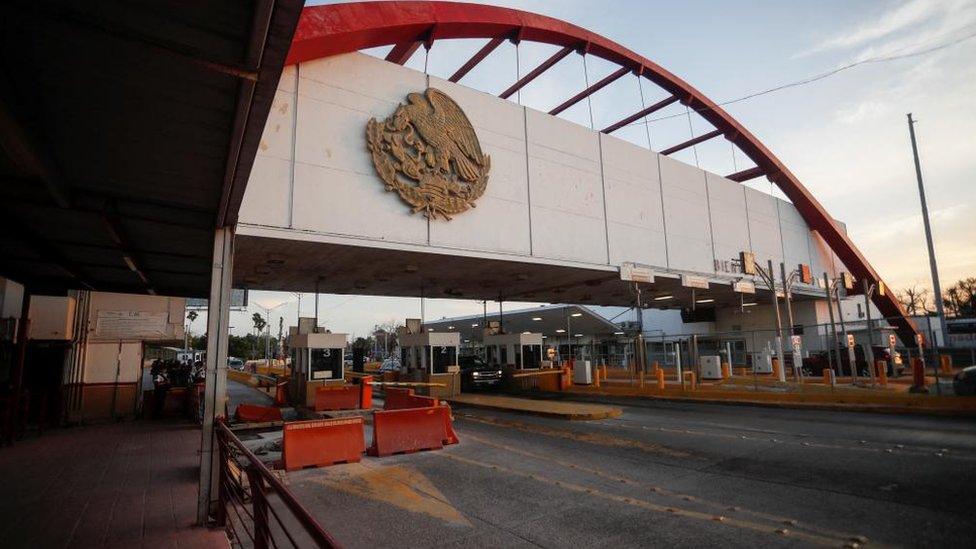
The international border crossing between Texas and Matamoros
However, the Reuters news agency has reported that three of the four Americans had convictions for mainly minor drug-related offences - but one was charged with manufacturing banned narcotics with the intent to distribute.
Reuters says it's seen an internal law enforcement document which shows the Mexican authorities are investigating the possibility the four Americans were kidnapped having been mistaken for rival cartel members encroaching on their turf.
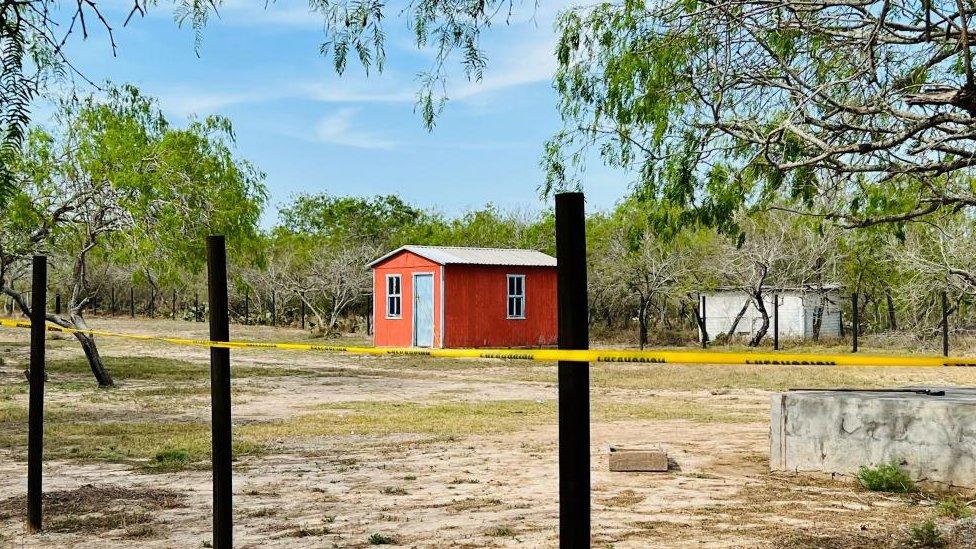
The wooden shack where the Americans were discovered
The question over the Americans' backstory comes as the political temperature over the incident in Matamoros continues to rise. In the United States, several Republican politicians, among them the Senator for South Carolina, Lindsey Graham, have called for the use of US military force against Mexico's drug cartels.
Specifically, he's proposing a plan to designate Mexican drug cartels as "Foreign Terrorist Organisations" in order to, as he put it, "unleash the fury and might of the United States against (them)".
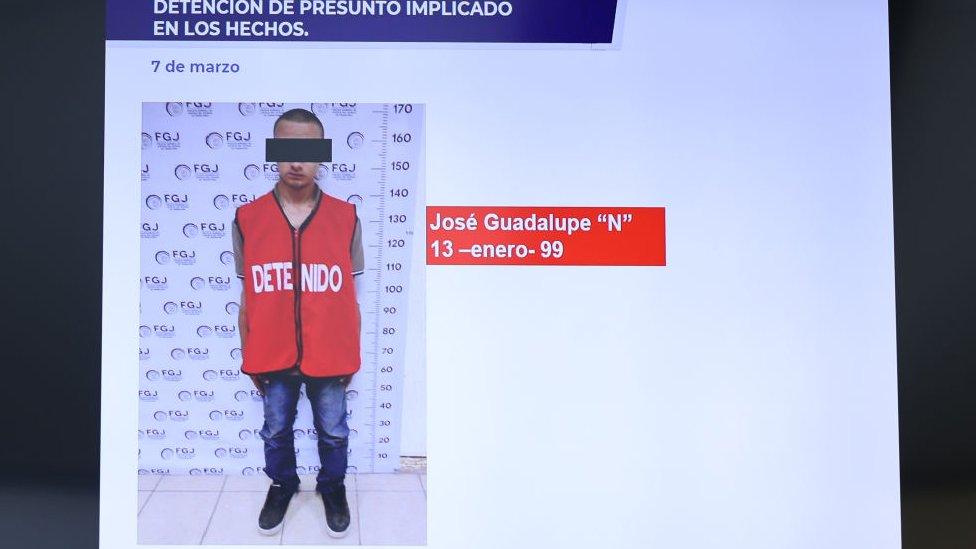
One suspected kidnapper was arrested earlier this week
That rhetoric prompted a furious response in Mexico from President Andres Manuel Lopez Obrador who said "Mexico was not a protectorate or a colony of the United States". His sentiments were echoed by the Foreign Minister, Marcelo Ebrard, who called Senator Graham's proposal for military intervention "unacceptable".
Amid the tense relations, the US Homeland Security Advisor, Liz Sherwood-Randall, is in Mexico for a meeting with President Lopez Obrador to discuss the worsening crisis over fentanyl and synthetic opioids in the US.
Related topics
- Published9 March 2023
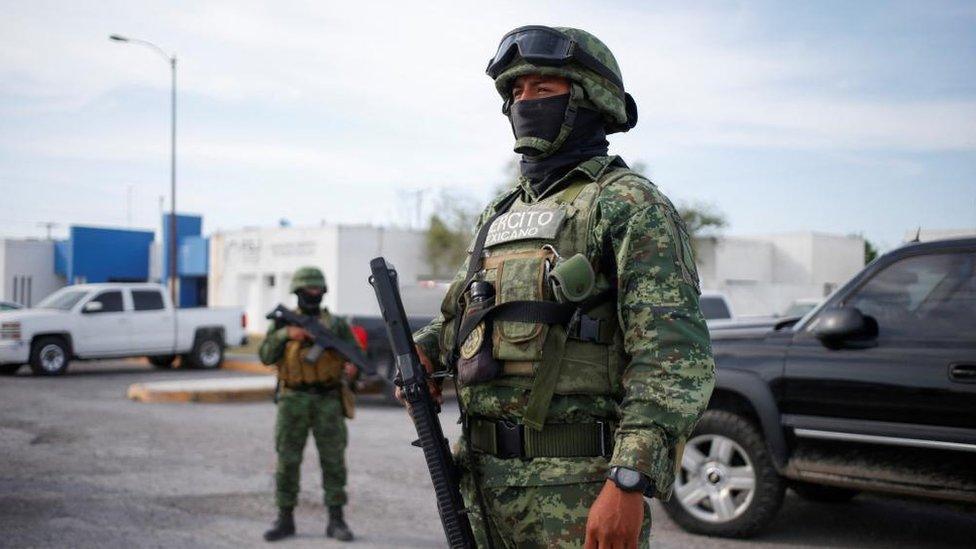
- Published7 March 2023
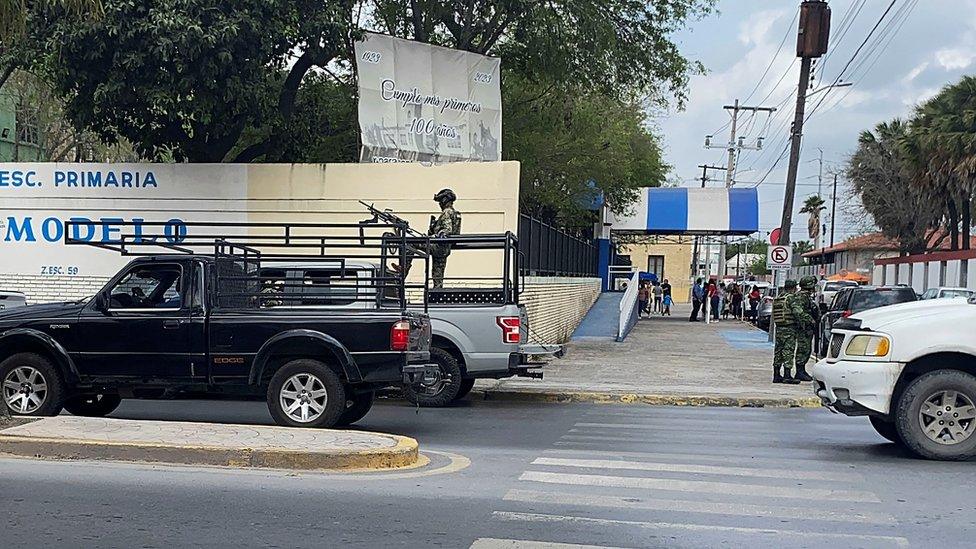
- Published7 March 2023
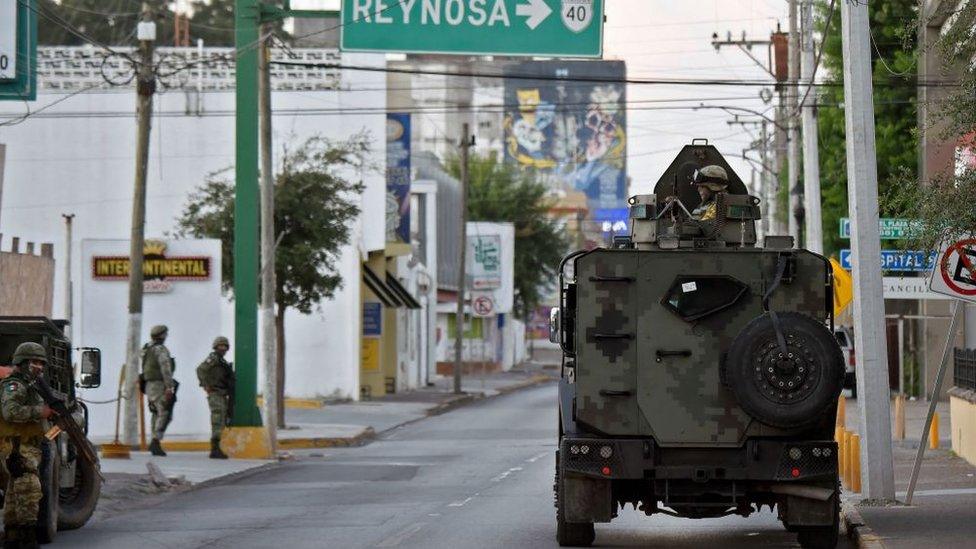
- Published8 March 2023
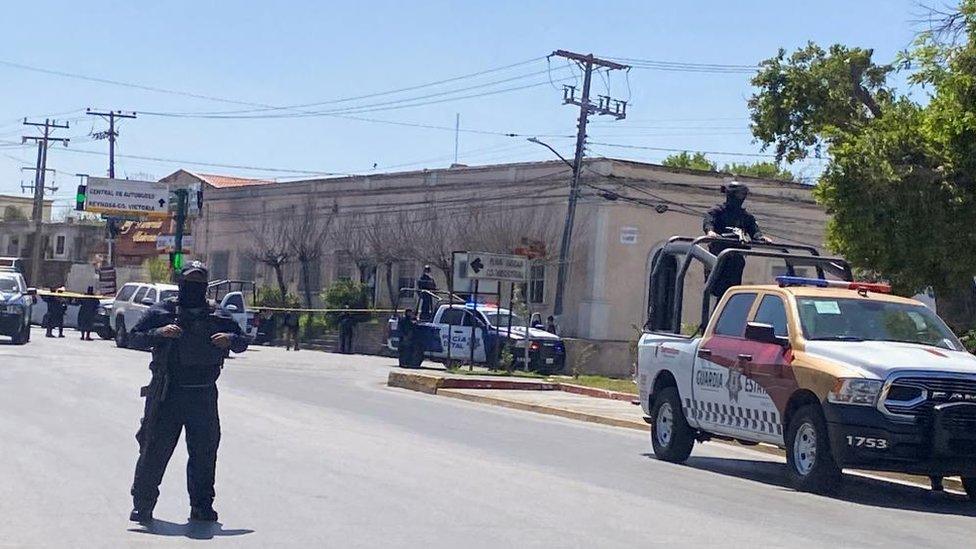
- Published7 March 2023
